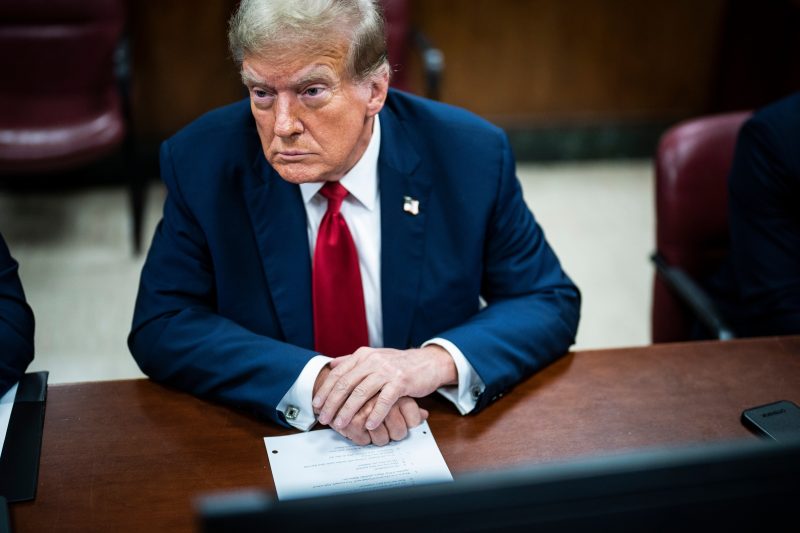Representatives for the firm that posted a $175 million bond for Donald Trump pushed back against objections raised by New York’s attorney general, saying in a court filing late Monday that the deal is “adequately secured” by the former president’s cash.
The filing sets the stage for a court hearing next week in Trump’s New York civil fraud case, where Justice Arthur Engoron will decide whether the bond has met state requirements — allowing Trump to appeal a massive civil judgment and preventing state authorities from seizing his properties in the meantime.
New York Attorney General Letitia James (D) on April 4 raised concerns about the arrangement, including whether Knight Specialty Insurance Company, whose owner is billionaire Trump supporter Don Hankey, is properly licensed in the state.
Knight and Trump’s representatives said in the new filing that the bond is backed by Trump’s Charles Schwab brokerage account, which has just over $175 million in cash. The filing also argues that Knight is properly licensed, including a statement from New York’s former superintendent of insurance, Gregory V. Serio, that Knight is qualified to do business in the state.
The filings, said Alan Garten, general counsel for the Trump Organization, demonstrate that “Knight is fully authorized to enter into this transaction and the bond is backed 100 percent by cash.”
Some experts, though, said the filing may not have fully answered all of James’s concerns about the bond. Adam Pollock, a former New York assistant attorney general familiar with bond matters, said that while the filing moves the matter “in the right direction,” it is still “overly complicated” and is likely to prompt Engoron to examine it thoroughly.
“It continues to raise serious questions about whether this bond actually secures the attorney general’s judgment,” Pollock said. “Justice Engoron is clearly going to hold a detailed hearing to examine the issue.”
Pollock cited, for example, a document in the filing that referred to an agreement with a separate company that backed a $91 million bond in a defamation case.
An individual close to the matter, who spoke on the condition of anonymity because of confidentiality concerns, acknowledged that portion of the filing was mistaken, referring to it as a “typo.” The individual said the document came from a template that had been used for the bond in the defamation case and the new filing should have been changed to refer to Knight Specialty Insurance Company.
Hankey said that he believed the court filing should resolve James’s concerns. He has said he got involved only after other bond companies declined to work with Trump, whose attorneys said other firms turned them down when they initially needed to secure a bond for more than $450 million — a sum that was later reduced.
“It is too bad that 20 large New York insurance companies all decided not to supply this bond,” Hankey said.
Hankey said he had no regrets about supplying the bond, since “it was the right thing to do.” He said that he secured a “modest fee” for backing the bond but declined to disclose details other than to say it was “a small percentage but a large dollar amount,” stressing that he believed the collateral from Trump made it a good business deal.
A person familiar with the matter, speaking on the condition of anonymity to disclose a confidential agreement, said that the bond fee was 1 percent and that Trump expected to benefit from earning interest on the $175 million at a rate of about 5 percent, making it worthwhile to use the bond company.
Under the terms of the deal, Trump granted Knight a security interest that gives it control of the funds and requires Trump to increase the amount in the account if it falls below $175 million.
A spokesman for the New York attorney general’s office declined to comment.
In February, Engoron ruled that Trump and his business partners owed more than $450 million in penalties and interest after years of submitting inflated financial information to banks and insurers to get better rates.
Under state law, Trump was required to post a bond in the full amount of the judgment to stop James from beginning to collect. His attorneys successfully argued for a reduced bond, telling an appeals court that Trump could not secure one worth nearly half a billion dollars. Hankey later told media outlets, including The Post, that he had been in discussions with Trump’s representatives about posting the larger bond.

